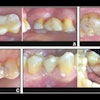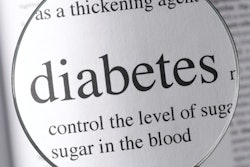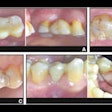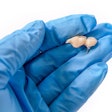
A new review published in the December edition of the Journal of the American Dental Association has linked metabolic syndrome with tooth loss. People with metabolic syndrome had fewer teeth and were more likely to have nonfunctional dentition, the review found.
For the review, researchers from Brazil and Australia parsed the findings of a dozen studies on the relationship between tooth loss and metabolic syndrome. However, they cautioned that more research is needed to confirm their findings.
"Participants with [metabolic syndrome] had fewer teeth and an increased likelihood of lacking functional detention than did those without [metabolic syndrome]," wrote the authors, led by Marina Leite Souza, a doctoral student at the Federal University of Santa Catarina Department of Dentistry in Brazil (JADA, December 2019, Vol. 150:12, pp. 1027-1039). "Better-conducted longitudinal studies are necessary to establish a causal relationship" between metabolic syndrome and tooth loss to establish the best strategies to prevent tooth loss in this patient population, they noted.
Metabolic syndrome is a cluster of conditions, such as high blood pressure, high fasting blood glucose, and high waist circumference, associated with an increased risk for type 2 diabetes and cardiovascular disease. Previous research has linked metabolic syndrome to periodontal disease, but less research has been conducted on the relationship between metabolic syndrome and tooth loss.
The researchers searched electronic databases for studies that explored the relationship between tooth loss and metabolic syndrome in adults age 18 years or older. They found 12 studies that met their inclusion criteria, nine of which they could use for the meta-analysis.
Most studies in the review found an association between metabolic syndrome and tooth loss, although two studies found an association only in women. In addition, having metabolic syndrome more than doubled the odds of lacking functional dentition, they found.
"Our findings suggest that people with [metabolic syndrome] have, on average, fewer teeth than do people without [metabolic syndrome] and are more likely to lack functional dentition," the authors wrote. "This finding is of concern because the lack of functional dentition can result in problems with chewing and can have an effect on eating patterns, such as a decreased intake of fruits and vegetables and increased levels of cholesterol and saturated fats."
Although the methodological quality of the individual studies was generally high, the authors cautioned that the evidence in their review was low. Notably, the included studies were very dissimilar from one another, and they used different criteria to diagnose metabolic syndrome.
As a result, the authors urged caution when generalizing their findings to large and diverse populations. They hope future studies use a standard design to better evaluate tooth loss and metabolic syndrome.
"Studying this topic is important because [metabolic syndrome] and [tooth loss] are prevalent conditions that negatively affect health and quality of life, increase the cost of healthcare systems, and exacerbate social problems and inequalities," they wrote.



















